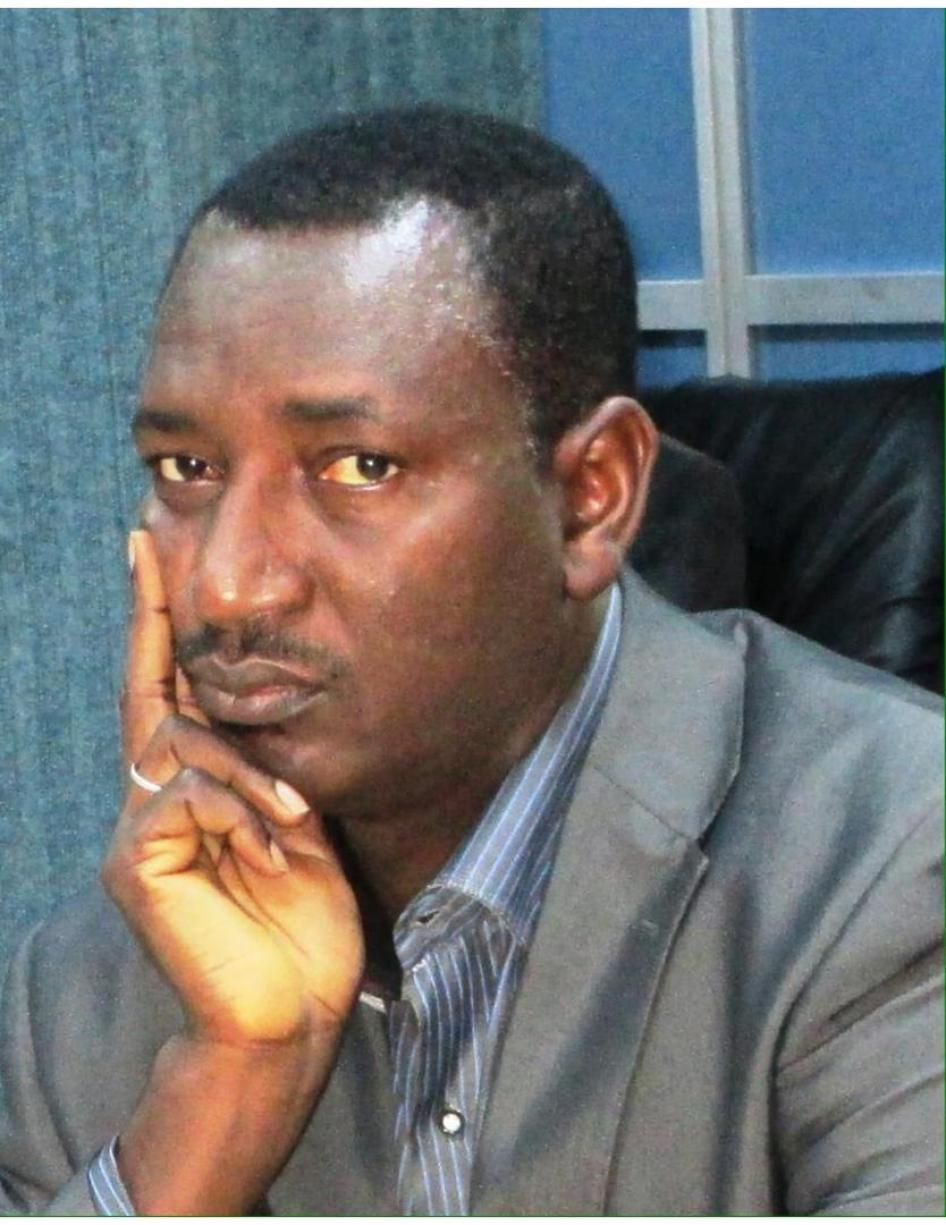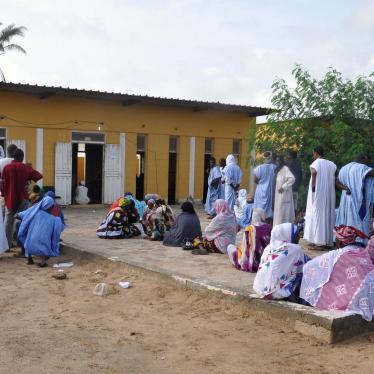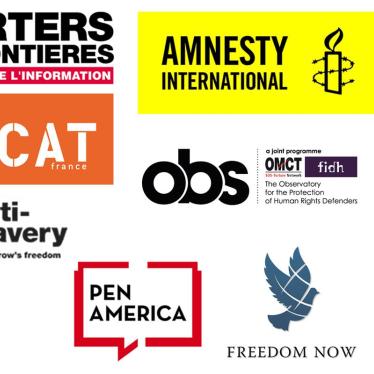(Tunis) – Mauritanian authorities detained for a week without charge at least three pro-opposition public figures apparently as part of efforts to smother dissent over the outcome of a June 22 presidential election, Human Rights Watch said today. Authorities also shut down the Internet and arrested dozens of opposition activists.
According to official results that four opposition candidates have called fraudulent, Mohamed Ould Ghazouani won 52 percent of the vote, avoiding a second-round run-off. President Mohamed Ould Abdel Aziz, who took power in a 2008 coup and won elections in 2009 and 2014, publicly backed the candidacy of Ould Ghazouani, the former defense minister.
“By shutting down the internet and locking up opposition sympathizers, Mauritanian authorities give the impression they want to suppress opposition to the election results,” said Lama Fakih, acting Middle East and North Africa director at Human Rights Watch.
Mauritania’s constitution barred Abdel Aziz from seeking a third term.
Protests broke out on June 23, after Ould Ghazouani declared victory based on partial results. Clashes with security forces were reported in some areas, including central Nouakchott, the capital. Interior Minister Ahmedou Ould Abdallah announced on June 25 that authorities had arrested around 100 people whom he described as foreigners linked with opposition candidates and accused of seeking to destabilize the country. Opposition activists interviewed by Human Rights Watch said that many of those arrested were Mauritanians, but they did not know the total number of arrests.
The government apparently began cutting off mobile internet service on June 23, according to Reporters Without Borders and sources in Mauritania. On June 25, fixed-line Internet service stopped working as well, the sources said, and was later restored only to some businesses. Internet access was fully restored on July 3. Authorities said the shutdown was necessary for security, according to local media and the state news agency.
Mauritanians rely heavily on the internet to access media – in particular, alternative media to state TV and radio stations – and to communicate with family and friends abroad. They connect overwhelmingly via mobile internet service.
The authorities arrested two journalists and a political activist linked to opposition candidates, holding each for about a week without charge and without explaining clearly the bases for the arrests, the three men and a lawyer representing them, Brahim Ebety, told Human Rights Watch.
Authorities arrested activist Samba Thiam on June 25 at his home in Nouakchott. Thiam is founder of the Progressive Forces for Change party (FPC), which authorities have so far refused to recognize, and an activist with the Living Together Coalition (CVE), whose candidate, Kane Hamidou Baba, came in fourth in the election. On June 23, Thiam publicly denounced election results as fraudulent and authorities’ response to protests as excessive via his Facebook page.
Thiam told Human Rights Watch that authorities confiscated his five telephones, two computers, USB drives, and various documents. He recovered the last of these items by July 16. Before releasing him without charge on July 3, Thiam said the authorities required him to sign a pledge to cease activities and speech promoting violence and extreme views – behavior in which he denied engaging.
Mauritanian authorities have previously used broadly-worded laws, including laws against inciting violence and racial hatred, to prosecute those who denounce slavery and racial inequalities.
Seidi Moussa Camara, a journalist, told Human Rights Watch that plain-clothes security agents detained him at home in Nouakchott on June 26, confiscating his passport, various documents, three computers, two mobile phones, and the phones of six other people there. Camara is an ally of the anti-slavery group Initiative for the Resurgence of the Abolitionist Movement (IRA), whose leader Biram Dah Abeid came in second in the election. He writes critically about authorities in La Nouvelle Expression, a newspaper he founded in 1999.
Authorities detained Camara at an anti-terrorism brigade facility, he said, and questioned him mainly about his activism and contacts as a journalist. He was transferred to detention at the State Security Directorate headquarters in Nouakchott on June 30, and released without charge on July 3, he said. He said he had recovered all the confiscated items.
Early on July 3, security agents arrested Ahmedou Ould Wedia, a well-known journalist with Mauritania’s Al-Mourabitoun television channel, at his home in Nouakchott. Ould Wedia reportedly belongs to the opposition Tawassoul party, whose candidate, Sidi Mohamed Ould Boubacar, came in third. On July 11, a Nouakchott prosecutor questioned Ould Wedia and ordered him kept in detention without clarifying the reasons, said Ebety, the lawyer. Ould Wedia was released without charge on July 15.
Authorities have released some of those arrested in connection with election protests, but still hold others on charges such as taking part in unauthorized demonstrations, damaging public property, and disturbing the peace, activists said. Courts have sentenced at least 13 of those arrested to prison terms of up to six months for these or similar offenses.
On July 9, a regional court in Kaedi, on the Senegal river, sentenced CVE activists Amadou Mamoudou Athie, Oumar Doro Sy, Mamadou Abou Diallo, Abou Lome, Amadou Koumba, and an IRA activist, Moussa Diobayrou Konate, to six months in prison, with four months suspended, and fines of 2,000 Ouiguiyas (US$54) for illegally forming a crowd, damaging property, and disturbing the peace.
The six men had been arrested on June 25 in the town of Rindiaw, said Fatimata Konte, an activist with the FPC and CVE who is documenting arrests of activists in the region. The court acquitted four other CVE activists from Rindiaw in the same proceeding. All ten had denied the charges against them and stood trial without a lawyer, Konte said.
As of July 16, the Kaedi court was also prosecuting a CVE activist, Ghaly Sall, and IRA activists, Abou Modi Diongue, Ibrahima Kane, Amadou Ousmane Día, Ismail Thimbo, Sidi Ould Brahim, Bakar Ould Bowa, Kader Bocoum, and Youba Ould Hamed, from the town of Lexaiba, for allegedly taking part in an unlawful demonstration, burning the mayor’s office, damaging property, and assaulting police officers. All pleaded not guilty and said during a July 11 hearing that police had chained them in stress positions and prevented them from sleeping, said Konte, who attended the hearing.
Authorities in Aleg, east of Nouakchott, are detaining CVE activists Oumar Bachir Dia, Adama Souleymane Bass, Mamadou Hamadi Niang, Ali Amadou Ba, and Abdoul Gueye on accusations of taking part in an unauthorized demonstration and disobeying the authorities, said Konté, who met with the five men at the prison in Aleg.
On July 11, a court in Nouakchott sentenced seven CVE and IRA activists to six months in prison for taking part in an unauthorized demonstration, vandalism, inciting hatred and racism, damaging property and national heritage, and resisting security forces, said Balla Touré, an IRA co-founder and activist. All denied the charges, he said. As of July 20, authorities in the city of Nouadhibou were detaining 13 men whom Touré described as opposition activists on the same charges, which they denied.









